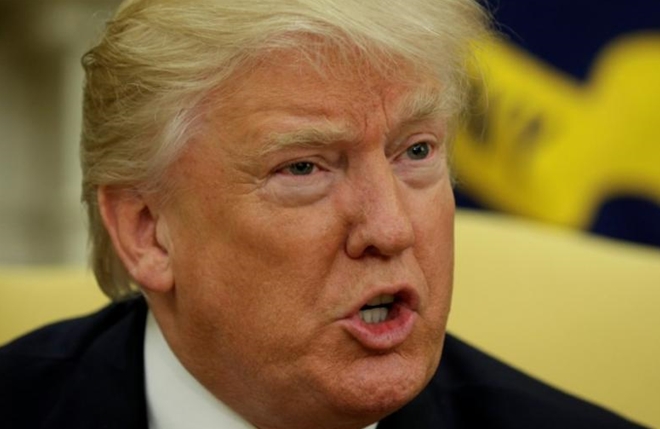Comey infuriated Trump with refusal to preview Senate testimony: aides
- Trump meets Russia foreign minister amid Comey controversy
- Comey had pushed for more resources for Russia probe before being fired by Trump: source
- In shock move, Trump fires FBI Director Comey
Trump, Attorney General Jeff Sessions and deputy Attorney General Rod Rosenstein had wanted a heads-up from Comey about what he would say at a May 3 hearing about his handling of an investigation into former Democratic presidential candidate Hillary Clinton's use of a private email server.
When Comey refused, Trump and his aides considered that an act of insubordination and it was one of the catalysts to Trump’s decision this week to fire the FBI director, the officials said.
 |
| U.S. President Donald Trump speaks to reporters after his meeting with Russian Foreign Minister Sergey Lavrov at the White House in Washington, U.S., May 10, 2017. REUTERS/Kevin Lamarque |
"It gave the impression that he was no longer capable of carrying out his duties," one official said. Previews of congressional testimony to superiors are generally considered courteous.
Comey, who testified for four hours before the Senate Judiciary Committee, said it made him feel "mildly nauseous" that his decision to make public his reopening of a probe into Clinton's handling of classified information might have affected the outcome of the Nov. 8 presidential election. But he said he had no regrets and would make the same decision again.
Trump's sudden firing of Comey shocked Washington and plunged Trump deeper into a controversy over his campaign's alleged ties with Russia that has dogged the early days of his presidency.
Democrats accused the Republican president of firing Comey to try to undermine the FBI's probe into Russia's alleged efforts to meddle in the 2016 election and possible collusion with members of the Trump campaign, and demanded an independent investigation. Some of Trump's fellow Republicans called his dismissal of Comey troubling.
The Trump administration said on Tuesday Comey was fired because of his handling of the Clinton email probe.
Before he axed Comey, Trump had publicly expressed frustration with the FBI and congressional probes into the Russia matter. Moscow has denied meddling in the election and the Trump administration denies allegations of collusion with Russia.
A former Trump adviser said Trump was also angry because Comey had never offered a public exoneration of Trump in the FBI probe into contacts between the Russian ambassador to Washington, Sergei Kislyak, and Trump campaign advisers last year.
According to this former adviser, Comey's Senate testimony on the Clinton emails likely reinforced in Trump's mind that "Comey was against him."
"He regretted what he did to Hillary but not what he did to Trump," the former Trump adviser said of Comey.
Clinton has said that the Comey decision to announce the renewed inquiry days before the election was a likely factor in her loss to Trump.
Aides said Trump moved quickly after receiving a recommendation on Monday to terminate Comey from Rosenstein, who began reviewing the situation at the FBI shortly after taking office two weeks ago.
Trump's move was so sudden that his White House staff, accustomed to his impromptu style, was caught off guard. Stunned aides scrambled to put together a plan to explain what happened.
White House spokesman Sean Spicer ended up briefing reporters about the move in the dark on Tuesday night near a patch of bushes steps away from the West Wing.

